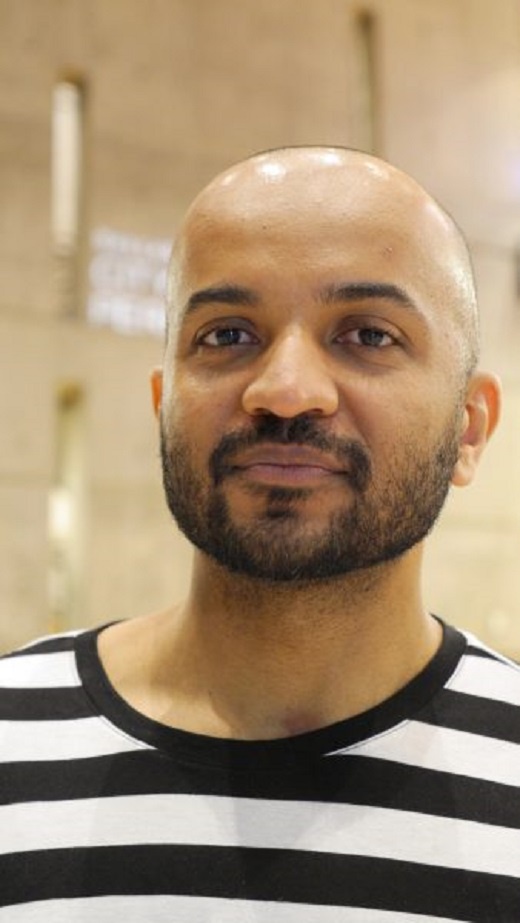 The film is a documentary, a four-year study of four African youths
The film is a documentary, a four-year study of four African youths
Travelling out of their home countries to the United States, or some other western country, to further their education is often a dream for most African youths. And one that many fulfil, judging by the habitual emigration of African students.
Oftentimes, the world is blessed with the news of these students doing phenomenal things in and out of school in these foreign lands, but we never get the entire story, especially not on film. We never get to see the initial struggle of a naïve teenager trying to acclimatise to a new society and the gradual evolvement into adulthood. Thankfully, Ghanaian film maker, Arthur Musah is changing that with a fresh way of cinematic storytelling.
Musah’s latest film, One day I too go fly, is a documentary, a four-year study of four African youths’ journeys to becoming engineers at the Massachusetts Institute of Technology (MIT). The film follows the lives of Nigerian, Philip Abel; Zimbabwean, Fidelis Chimombe; Tanzanian, Sante Nyambo; and Rwandan, Billy Ndengeyingoma in school, MIT and in their home countries. His first film, Naija Beta, which explored the same narrative, was met with widespread acclaim and won several awards.
In this interview with Ventures Africa, Musah talks the idea behind One day I too go fly, and his passion for telling stories about Africa and Africans in an ingenious way that he’s dubbed – new cinematic narratives.
Ventures Africa (VA): What inspired the creation of “One Day I Too Go Fly” and its title?
Arthur Musah (AM): One day I too go fly came from a desire to understand how one changes over time, how an immigrant becomes acclimatised to one society and estranged from another. Which parts of your old self do you keep? Which new things do you pick up? At 19, I flew from my home in Ghana to the United States to attend college. The flight was full of other students; some, my classmates emigrating to pursue studies. A decade later, we were finished with those studies; some with masters and doctorates, and others with substantial work experience post studies. Yet my sense was that only a few of us had returned, and maybe fewer of us had realistic prospects of returning to our homes. There was much we had gained, and some things we had lost.
Personally, I had lost my ability to speak a couple of Ghanaian languages; Twi and my dad’s Dagaare. And every two years when I went to visit home, I would load up on antimalarials, a practical measure since I didn’t want to spend my vacation in bed. But it felt weird to be arming myself against the environment that was supposed to be my home. It seemed like the tip of the iceberg and underscored how in some fundamental way I had become estranged.
In my conversations with my friends and classmates who had left Ghana to study in America and had stayed, we were questioning how that had come to be. For some people, they had started families that would be hard to transplant, and that too made sense. Yet I sensed there was something else that had shifted within each of us. What was it? How do I put a finger on it? And what was the cost of that shift or our absence in the countries we came from? Those were the questions that were swimming around in my head.

Arthur Musah
At the same time, I was leaving film school and hunting for an idea to make into a film project. When a couple of friends suggested, “why not make a film about international students at MIT” a lightbulb went off in my head. That seemed like a good way to explore the questions I was wrestling with, so I made a film about Africans going through MIT. I have always seen One day I too go fly as a coming of age film. You arrive in America as a teenager curious about knowledge, you go through four tough years of college where you are confronted with new ideas, people and culture, and you come out affected by that experience as an adult. The experience shapes you in a unique way, and that’s how the film was inspired.
The title is Pidgin English for One day I too will fly. In secondary school in Ghana, boys used to say “chaley, I go fly go Yankee oooh”, dreaming of going to America, of exploring the world, of being part of things that were state of the art and of creating and contributing to cutting edge knowledge. The title represents those dreams and ambitions that young people at my high school, Presbyterian Boys’ Secondary School, and high schools all over Africa had and still have.
VA: Kindly explain the term, “the new cinematic narrative”.
AM: I call my films new cinematic narratives because they are not stories that I have seen on screen before. I call them new especially when I reach out to a media like Ventures Africa that is filling a gap and expanding the popular narrative about Africa and Africans because I am trying to draw attention to what I see as a common mission. Africans have been at MIT, Harvard and Oxford for a long time, and contribute much to Western and African societies, that is not new. What is new is the coverage of that reality. Finally, someone like me has the power to create films, and those films will reflect my view and my experience of the world. And of course, those films will have many African people at their centre, even when the stories are set in lands outside of Africa.

Sante Nyambo from Tanzania
VA: Four years seems rather a long time; why did production take so long?
AM: I wanted to track the growing up that one does in college in real time. In my first write-up of the idea, the production was going to take place over one year. I would cast a couple of people in year one, a couple in year two or three, and a couple in their last year of college, and follow their lives for one year. But as I thought more about the project, I felt like that was the quick and lazy way to do it. I felt it would be more compelling to take more time and stick with one group of people and watch them physically and mentally grow on screen. We all come in baby-faced and innocent to college, and after four years we are adults, much wiser about the world and about ourselves. You can’t capture that in a year. It had to be at least the full four years. Currently, we are in year six, although we are not filming as frequently as when our protagonists were undergrads.
VA: Was there a metric for the selection of your characters?
AM: The metrics were rather simple. The characters had to be African, new first year students at MIT, and they had to be coming directly from Africa. It was important that we started our film at the beginning of our subjects’ journeys of exploring a new world and being changed by it.
VA: What did you find the most fascinating in the course of putting this together?
AM: Lots of things amazed me on the project. First, there was the four students’ bravery in agreeing to take part in the film and their dedication to seeing it through the years. They kept video diaries themselves and had to coordinate with me about filming. Running a Kickstarter and finding a community of financial and mental support was wonderfully fascinating. You kind of start the work by yourself and then people come around and help you make it bigger and better. It’s wonderful. Fascinating also was getting to meet young people in Nigeria, Tanzania, Rwanda and Zimbabwe, and to be reminded how creative and curious and talented the youth on our continent are.

Billy Ndengeyingoma from Rwanda
VA: Are all your projects going to have the same narrative like Naija Beta and One Day I Too Go Fly?
AM: I hope not. A trilogy has been tempting, so maybe there will be one more documentary film set around the context of education in Africa. A couple of ideas I would love to do are:
A coming of age film about African youths that stay in their country and go through college … what is that experience like?
A historical film exploring my father’s generation’s experiences of studying abroad. My dad studied in the Soviet Union on a scholarship and has several friends of his in Ghana that did the same. They all returned home, pretty much right after they finished their studies. I’ve been curious about what precipitated those quick moves back home, and what impact they had on their societies. But honestly, I am ready to tackle fiction, and have been itching to work with a script and actors and a cinematographer and set lighting and all that stuff. So my 3rd project will be a fiction film, I hope, probably about African characters. We’ll see.
VA: Besides crowd funding on Kickstarter, what’s another way you get funding?
AM: I have applied for every grant and funding opportunity we qualify for that I could find. We have received a few that have helped the Kickstarter funding go further. I have put my own money into both projects as well. Friends have sent me a check every now and then to help out.
VA: What is the significance of this new documentary to Africans both at home and in the diaspora?
AM: For the diaspora, I hope it will be moving to see our experiences exalted onto the silver screen. For Africans at home, I hope the film can be a resource to see a young African who could be their sister, brother, daughter, or son navigate an unfamiliar world. For all Africans, I hope the strength and brilliance and passion of our four young protagonists will be a source of inspiration.
Arthur Musah is a filmmaker from Ghana and Ukraine. His documentary Naija Beta premiered in 2016 at the Pan African International Film Festival in Cannes and won Best Documentary Feature at the Urban Mediamakers Film Festival in Atlanta, and an Achievement in Documentary Film Award at the Silicon Valley African Film Festival. Naija Beta also screened at the Museum of Fine Arts Boston, where it won Best Documentary Short Film at the Roxbury International Film Festival. Musah studied filmmaking in the MFA program at the University of Southern California (USC) as an Annenberg Fellow and holds a bachelor’s and a master’s in Electrical Engineering and Computer Science from MIT. Musah is currently running a Kickstarter campaign for the post-production of One day I too go fly.